- Home
- entertainment
- news
- 50 TV and movie remakes that are better than the original
50 TV and movie remakes that are better than the original
Meghan Cook

- Some remade series like "The Office," "Shameless," and "Parenthood" were perceived as better than the original for many viewers and critics.
- In some cases, remakes of "The Parent Trap" and "A Star Is Born" have been more successful or better received than their predecessors.
- Netflix reboots like "Queer Eye" and "One Day at a Time" have been well-received by critics and audiences alike.
- Visit Insider's homepage for more stories.
With so many TV and movie reboots, remakes, and sequels, original films and series seem to be in short supply.
Although many remakes can't compete with their predecessors, plenty of them have been more well-received than the ones that came first.
Here are 50 television and movie remakes that many critics and viewers believe are better than the originals.
Read the original article on Insider"The Lord of the Rings: Fellowship of the Ring" (2001) started off an incredible film saga.
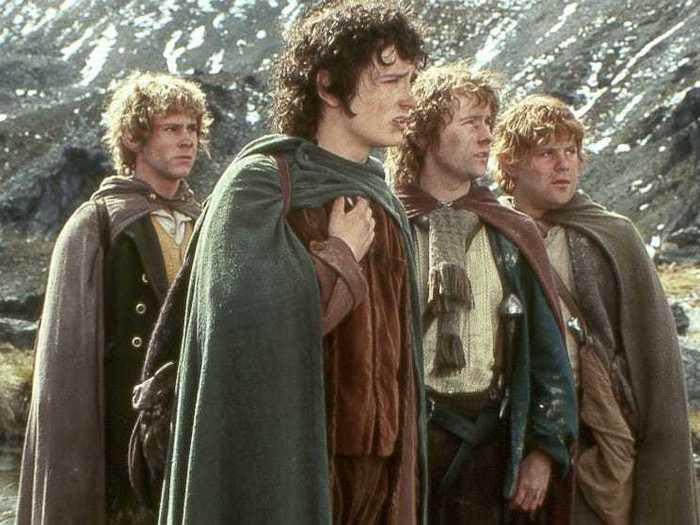
Peter Jackson's fantastical adventure trilogy was an ambitious adaptation of J.R.R. Tolkien's "Lord of the Rings" book series that kicked off in 2001 with "Fellowship of the Ring."
The live-action remake was prized by critics and fans of the book, but it was preceded by an animated adaptation by Ralph Bakshi that was released in 1978.
Jackson's interpretation of Tolkien's work is undoubtedly the most successful version released so far.
"It's emotion that makes Fellowship stick hard in the memory," wrote Peter Travers in his review of the film for Rolling Stone. "Jackson wisely ends the film not with fireworks but with a small scene that cements the friendship between Frodo and Sam. Jackson deserves to revel in his success. He's made a three-hour film that leaves you wanting more."
Read More:
NBC's "Parenthood" remake had a vast cast of talented actors.
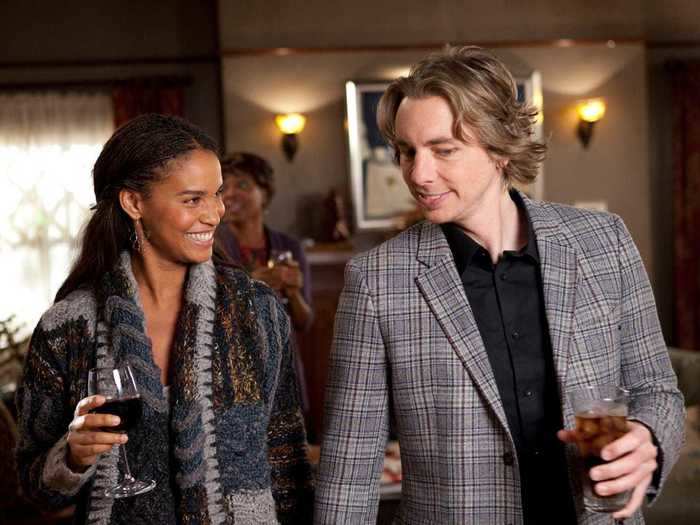
"Parenthood" was a remake of a film released in 1989 and a short-lived television series that followed soon after in 1990. The NBC remake has been the most successful version of the show thus far.
NBC's long-running drama "Parenthood" boasted a stellar cast — Craig T. Nelson, Lauren Graham, Peter Krause — and captivating writing. The show ran for six seasons from 2010 until 2015.
"Life is really nothing more than a series of moments strung together in a random order. When you're in the midst of those moments, they just feel like your life; it's only at the very end, when you look back, that you can see your legacy," AV Club's Carrie Raisler wrote in her review of the show's finale in 2015. "The beauty of Jason Katims shows like 'Parenthood' and 'Friday Night Lights' — and specifically their finales — is that they understand this delicate balance between life and legacy."
"Star Trek" (2009) wowed critics upon its release.
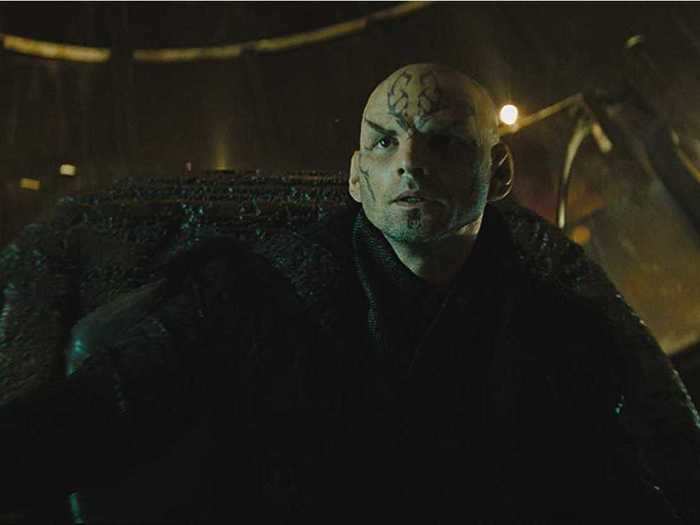
As much of a reboot as it is a sequel, J.J. Abram's "Star Trek" was a clean slate for a space adventure franchise that spanned multiple films and several television series.
Fans of the original show may disagree with critics, but the 2009 reboot was generally considered the most visually arresting and well-oiled "Star Trek" adaptation thus far.
"In going back to tell the Enterprise story from the beginning, Star Trek presses collective emotional buttons people didn't even know they had," Mick LaSalle wrote for the San Francisco Chronicle in 2009. "At its best, the effect is like seeing life panoramically, past and future, simultaneous and magnificent."
The CW's "The Flash" is the second TV adaptation of the popular comic.
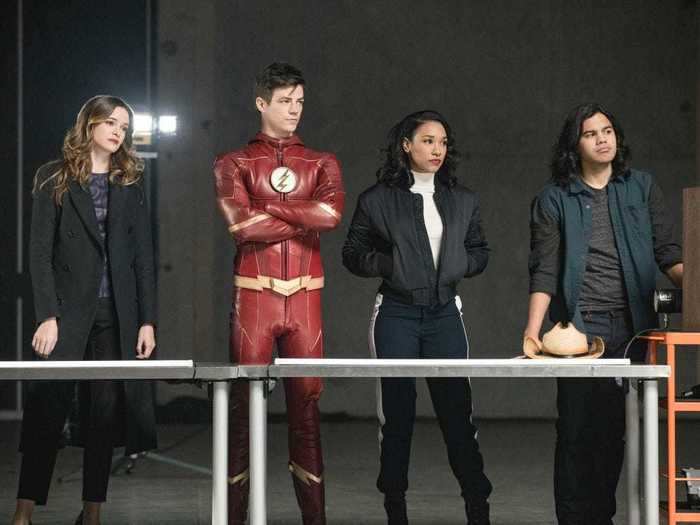
The CW has rebranded itself as a superhero network with heavy hitters like "Arrow," "Supergirl," and "The Flash."
Today's "Flash" stars Grant Gustin and centers around DC comics' "fastest man alive" in contemporary Central City, but an earlier television adaptation first premiered in 1990.
Interestingly, the original Barry Allen was played by John Wesley Shipp, who now plays Gustin's father in the new series.
NPR's Linda Holmes reviewed the first season of the show in 2014: "What executive producers Andrew Kreisberg and Greg Berlanti have settled on here is a kind of family-friendly action-adventure show with a solid sense of humor about itself as well as a strong streak of sentiment about the things that really matter."
"Spider-Man: Homecoming" (2017) impressed critics and fans alike.
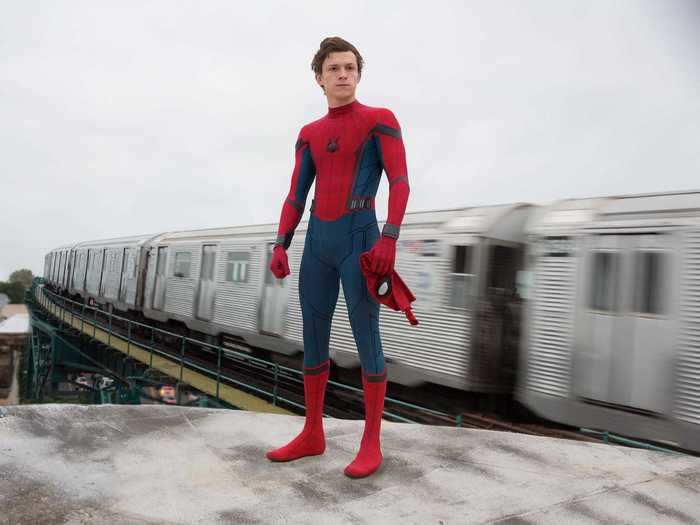
Like many Marvel superheroes, Spider-Man has lived many lives on screen, most notably starting with Tobey Maguire in 2002, who was followed by Andrew Garfield in 2012.
When Tom Holland donned the red and blue suit in 2017, some fans were initially apprehensive to relive another Spider-Man origin story, but the newest remake exceeded expectations.
"'Homecoming' is one of the best Spider-Man films to date," wrote Bowling Green Daily News critic Michael Compton. "[It's] a delightful mix of the Marvel Universe and the world of John Hughes that has plenty of laughs and human elements mixed into the action."
"Stargate: Atlantis" was the best installment in the "Stargate" franchise.
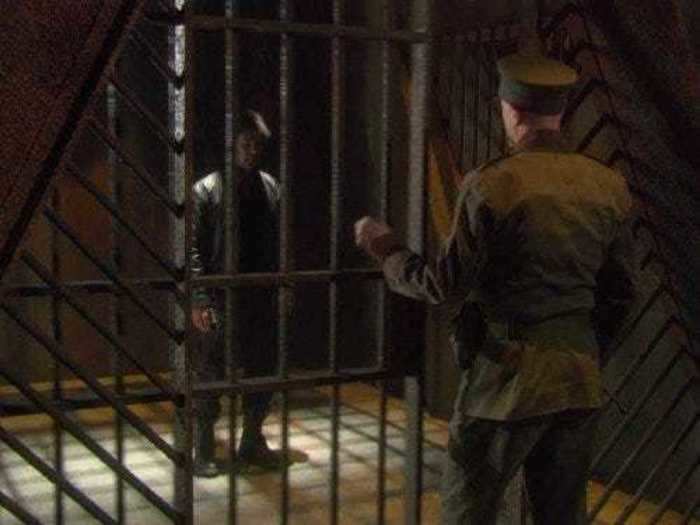
"Stargate" was a 1994 science-fiction movie that would later spur two films, "Stargate: The Ark of Truth" (2008) and "Stargate: Continuum" (2008), and multiple television series.
The multiple variations of the story had differing degrees of critical success, but "Stargate: Atlantis" has been praised as the best adaptation of the original.
"If you can appreciate anything about 'Atlantis,' it's the absolutely flawless ending the show had," Russell Holly wrote for Geek in 2014. "By the end of the series, 'Atlantis' had everything it could possibly need to survive for a very long while and no real enemies to worry about. While it's not the longest running series ever…'Stargate: Atlantis' is one of my favorite sci-fi shows ever."
"Rise of the Planet of the Apes" (2011) was a strong revival in a long-dead franchise.
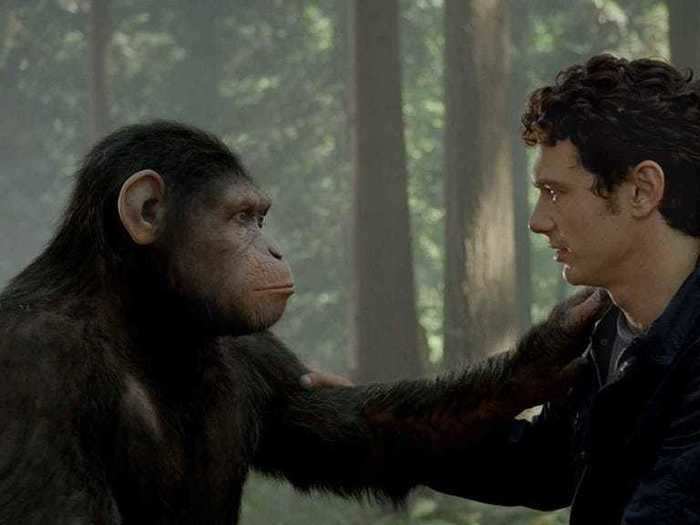
Directed by Franklin J. Schaffner, the original "Planet of the Apes" (1968) was a breakthrough film in the science-fiction genre.
The movie was widely appreciated by film critics and spurred four sequels throughout the mid-1970s.
Although some film critics may disagree on whether the 2011 remake "Rise of the Planet of the Apes" measured up to the original, it certainly fared better than the 2001 remake directed by Tim Burton, both commercially and critically.
"Distinguishes itself from other ill-conceived reboots in general, and from Tim Burton's disastrous 2001 remake in particular, by looking with fresh, simian eyes at its core conflict between human and primates, " critic Nigel Floyd wrote for Time Out.
The "Buffy the Vampire Slayer" TV series improved upon the original cult film.
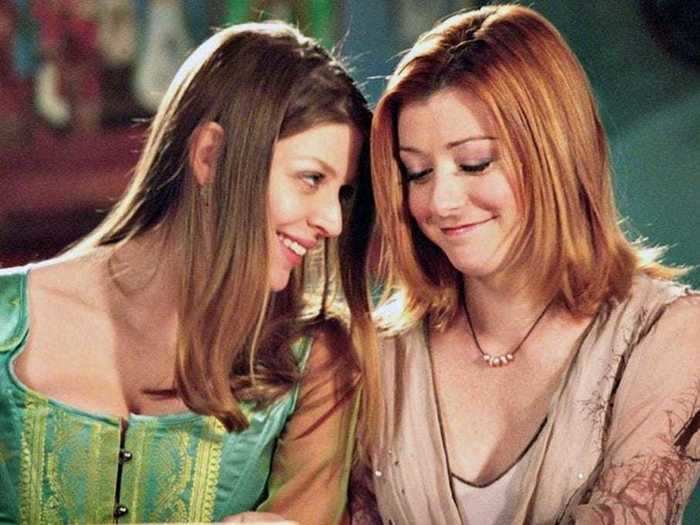
Before Joss Whedon adapted "Buffy the Vampire Slayer" into a television show that starred Sarah Michelle Gellar, there was a 1992 "Buffy" film where Kristy Swanson wielded the wooden stake.
The TV show took the campy vampire slayer premise and found new heart within the story, and it ran from 1997 until 2003. Gellar's reimagining as Buffy became a touchstone for science-fiction fans and feminists alike and her character is still an inspiration to many today.
"These were complex characters who grew and developed in ways that fans couldn't always anticipate, or necessarily approve of," Amy Roberts wrote for Bustle in a retrospective on the show. "'Buffy' was dealing with issues that no other show dared to, but did so in ways that felt accessible by hiding the pains of adolescence, heartbreak, addiction, abuse, loss, and even misogyny behind supernatural guises."
The "M.A.S.H." TV series expanded upon the 1970 film.
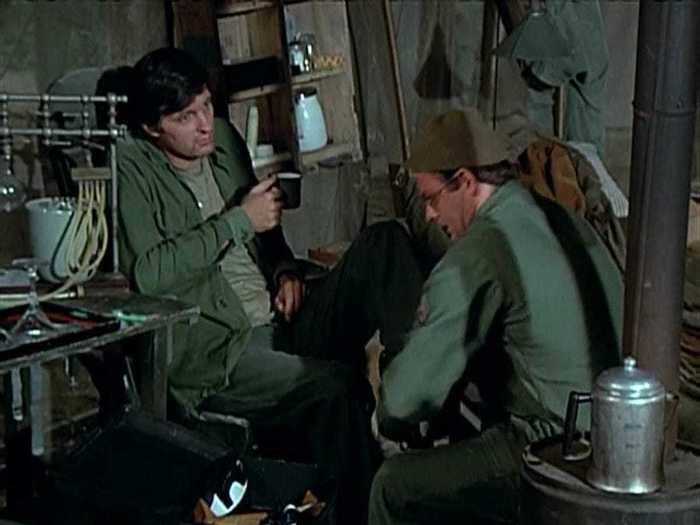
The "M.A.S.H." television series was based on a 1970 war film of the same name. Both versions take place during the Korean War and center around a group of doctors and military staff during wartime.
Although the film was positively received, most critics prefer the television format, which ran from 1972 until 1983.
The show consistently appears at the top of critics' lists and, in 2013, the Writers Guild of America ranked "M.A.S.H." as the fifth best-written television show in TV history.
"If you liked the movie you'll like the series," Hollywood Reporter critic Sue Cameron wrote in 1972. "The same absurd attitude that prevailed in the movie is in the series, and it should have a fine run."
HBO's "Westworld" series was originally a 1973 film that was adapted from a novel.
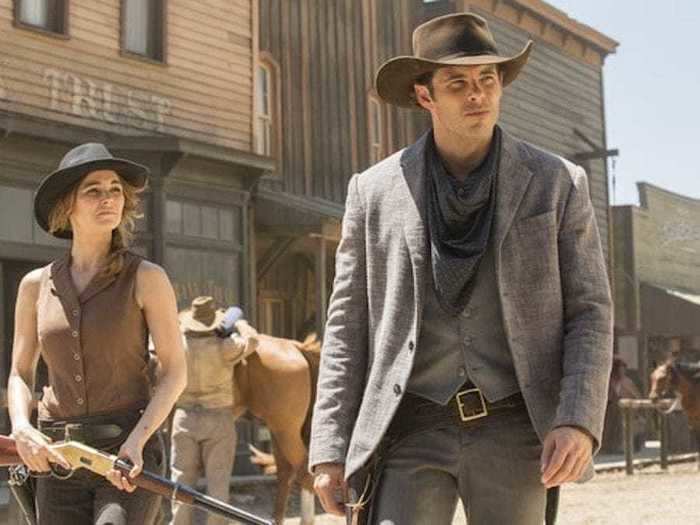
Before "Westworld" was earning awards and critical recognition for HBO, it was a 1973 film directed by author Michael Crichton, who adapted the movie from his own novel.
The film starred James Brolin, Yul Brynner, and Richard Benjamin and was met with solid praise, but today's critics agree that the slick and artistic television remake goes above and beyond the original material.
"'Westworld' producers Jonathan Nolan and Lisa Joy have created a beautiful look at a complex subject through a visually stunning piece of art," TV Fanatic's Carissa Pavlica wrote in 2018. "It's thought-provoking. It's gut-wrenching. It's maddening. And I simply cannot wait for the saga to continue."
"Dredd" (2012) gave the comic-book character a second chance on screen.
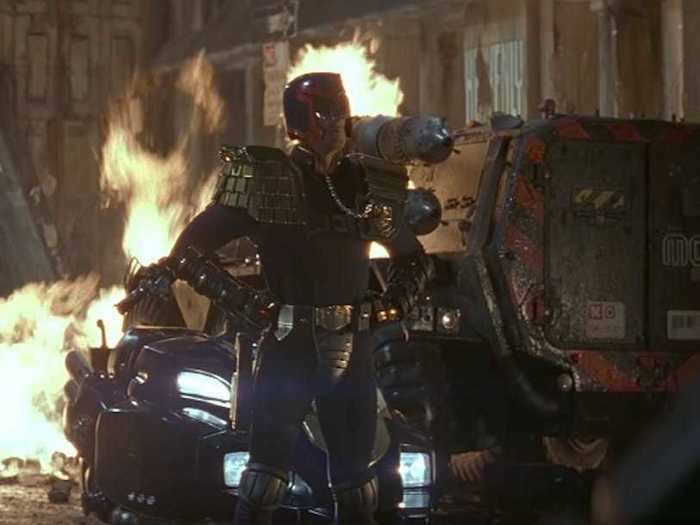
Based on a comic-book series, the original "Judge Dredd" came out in 1995 with Sylvester Stallone at its helm.
The first film was a critical and financial failure, topping several lists as one of the worst science-fiction films of all time. In 2012, the flick was remade as "Dredd" with Karl Urban in the titular role.
Although the 2012 remake also suffered at the box office, it fared much better with critics and comic-book fans alike.
"'Dredd' knows its characters and world in a way that many adaptations do not," MTV film critic Charles Webb wrote in 2013. "It blends them together with a not-overly-complicated narrative to deliver one of the best jolt-to-the-brain action movies of the last year."
"12 Monkeys" (1995) was a remake of a French short film.
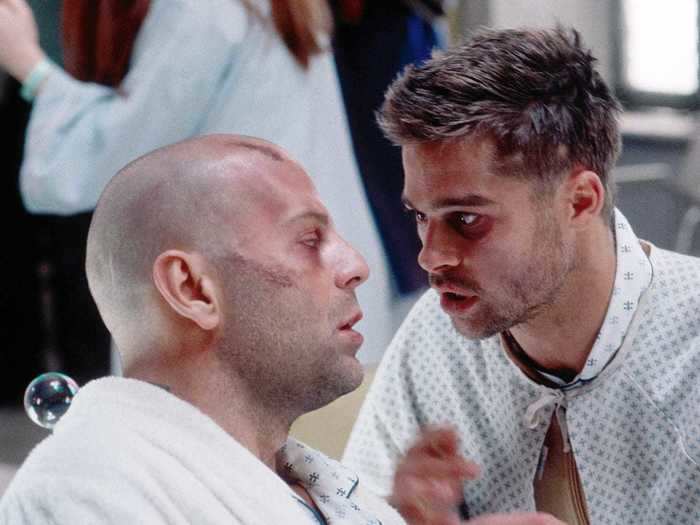
A remake of the French short film "La Jetée," "12 Monkeys" is a 1995 science-fiction film that starred Bruce Willis, Madeleine Stowe, and Brad Pitt.
This remake was profitable and it was a critical hit.
"Few directors have visions as ambitious as Terry Gilliam's," wrote Carly Kocurek for Common Sense Media. "While cinematically rich, this is more than just a feast for the eyes — it's a sharply written, well-acted piece of cultural commentary."
"The Parent Trap" (1998) was a new take on a family film.
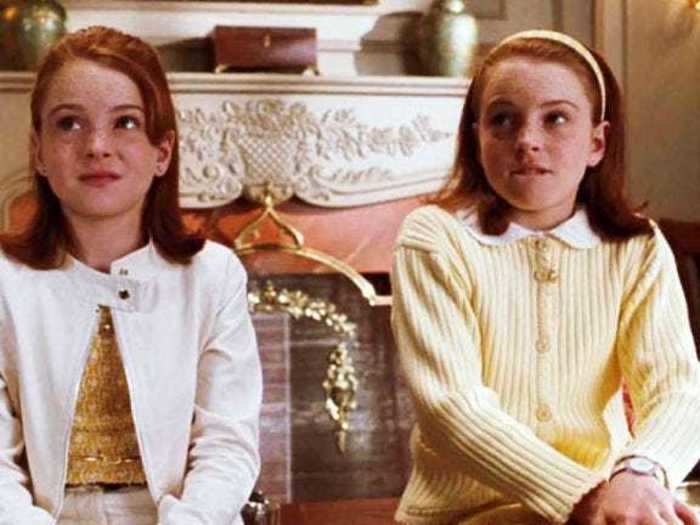
A remake of Disney's 1961 "The Parent Trap," the 1998 iteration focused on identical twins (both played by Lindsay Lohan) as they attempt to get their divorced parents to fall in love again.
The remake was written and directed by Nancy Meyers ("The Holiday," "It's Complicated") and was received well by critics and filmgoers alike who found it to be a charming movie for the whole family.
Rotten Tomatoes' critical consensus of the film found "The Parent Trap" certified fresh with 86% approval from critics: "Writer-director Nancy Meyers takes the winning formula of the 1961 original and gives it an amiable modern spin, while young star Lindsay Lohan shines in her breakout role."
"Mad Max: Fury Road" (2015) was a much-needed revival for the action franchise.
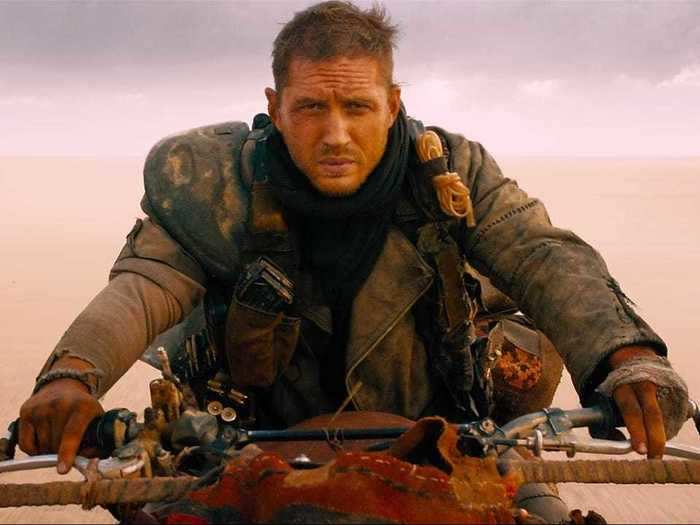
A reboot of a franchise, "Mad Max: Fury Road" renewed interest in George Miller's "Mad Max" universe.
Taking place in a dystopian future where the world is a wasteland and men act like animals ravaging for supplies, the latest Miller effort broke the mold and won immense accolades for its stylization and cinematography, as well as praise for Charlize Theron's performance as Imperator Furiosa.
"From where I'm sitting, Mad Max: Fury Road is, quite simply, the greatest action movie ever made," AV Club reviewer Tom Breihan wrote in 2017. "Miller found a way to tell a moving, mythic, larger-than-life story in a fully-realized alternate world, and he did it without ever letting up on the throttle."
The remake of "Battlestar Galactica" lasted much longer than its predecessor.
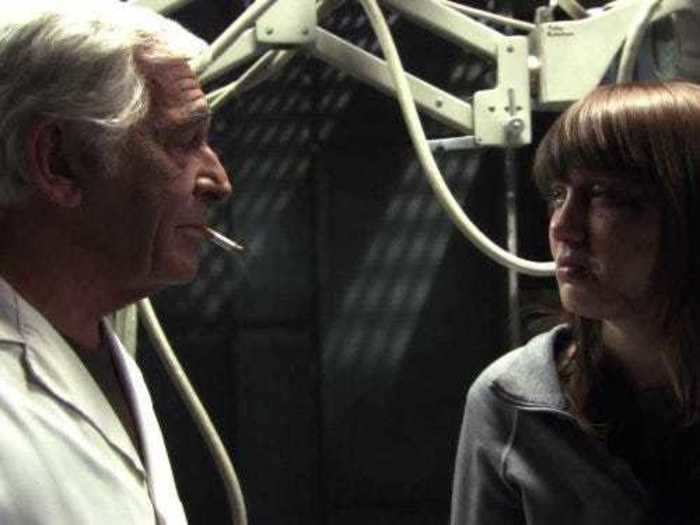
The original "Battlestar Galactica" only ran from 1978 until 1979 before it was unceremoniously canceled.
However, the television revival in 2004 ran for a total of four seasons and managed to wow critics and fans alike with its visual effects, costume design, and acting performances.
"The basic-cable budget sometimes shows in the production," wrote Time Magazine critic James Poniewozik. "But the writing and performances are first-class, especially Edward James Olmos as the noble but authoritarian commander in charge of saving the last remnants of humanity."
"The Quiet American" (2002) and its 1958 counterpart were both based on a novel.
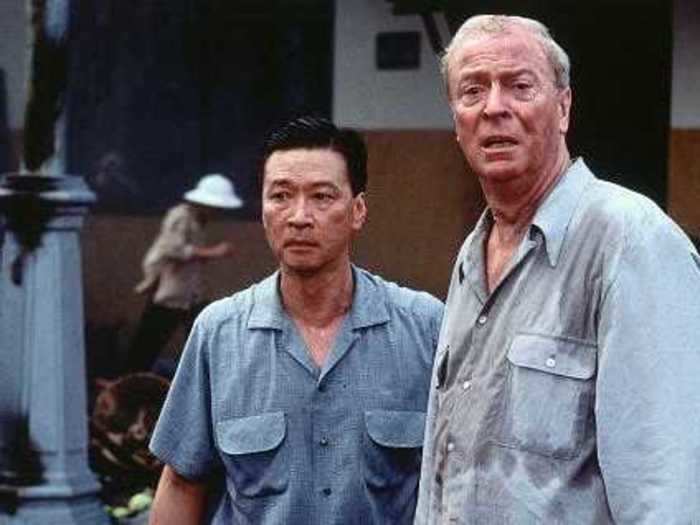
2002's "The Quiet American" starred Michael Caine, Brendan Fraser, and Do Thi Hai Yen and was a remake of the 1958 version, which was based on Graham Greene's "The Quiet American" novel.
Both films were met with high praise, but the 2002 version stood the test of time to emerge as the more beloved adaptation in critics' eyes.
"Phillip Noyce's 'The Quiet American' glides along exquisitely, like a boat in the indigo twilight of a Saigon river," Seattle Times film critic Moira MacDonald wrote in her 2003 review. "Set in a 1950s Vietnam that is in turn dreamily nostalgic and hellishly violent, it's both a quiet little story about a love triangle and an eerily prescient metaphor for subsequent American involvement in Vietnam."
"Friday Night Lights" was a stellar television adaptation of a film.
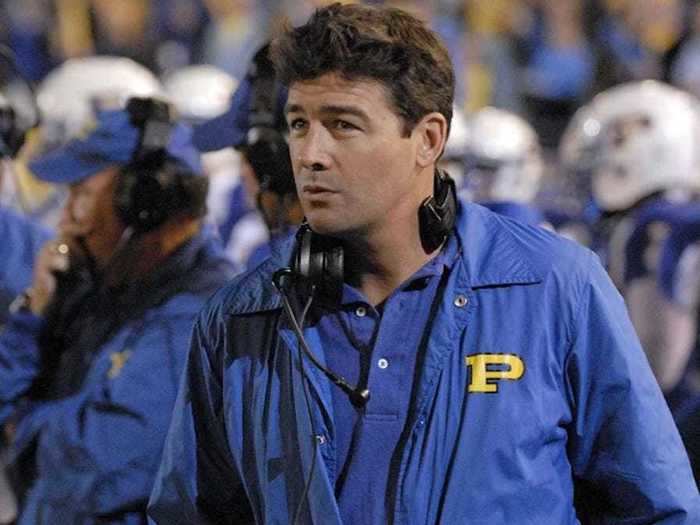
Before it was a hit television show, "Friday Night Lights" was a 2004 sports drama directed by Peter Berg.
Both the TV series and the film were based on a non-fiction book titled "Friday Night Lights: a Town, a Team, a Dream" which centered around a small-town Texas football team and their hopes of winning the state championship.
The television series starred Kyle Chandler and Connie Britton and its 76-episode run received great acclaim.
"Ultimately what makes the show stand apart is its faith in humanity," The Guardian critic Sarah Hughes wrote in 2012. "It knows life isn't perfect or wonderful, that terrible things happen — but it tells us too that life is worth living, that friends are worth celebrating and that even the smallest of dreams can be worth chasing."
"Casino Royale" (2006) breathed new life into a franchise.
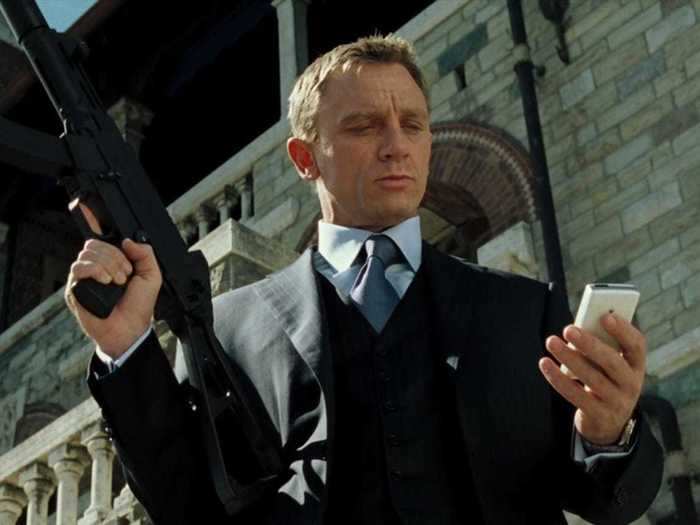
Another high-profile moment for actor Daniel Craig came in 2006 when he starred as British spy James Bond in "Casino Royale," an action movie that shook the franchise awake with new energy.
As the 21st edition in the series, this was viewed as the best Bond installment in decades, or possibly, ever.
"As the plot globe-trots from Prague, London, Miami, and the Bahamas to an overblown climax in the canals of Venice, 'Casino Royale' uncovers something unique in the 007 dossier: an unformed secret-agent man, lacking polish, vulnerable to violence and helplessly lost in love," Rolling Stone critic Peter Travers wrote in his glowing review of the film in 2006. "Craig gives us James Bond in the fascinating act of inventing himself. This you do not want to miss."
"The Girl With the Dragon Tattoo" (2011) was a remake of a Swedish thriller.
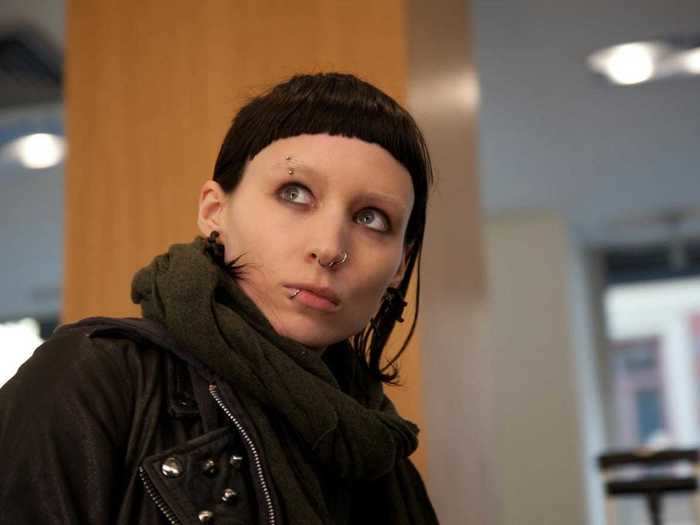
Adapted from the popular Swedish thriller by author Stieg Larsson, "The Girl With the Dragon Tattoo" was also a remake of a 2009 Swedish film adapted from the same novel.
The original starred Michael Nyqvist and Noomi Rapace and the American remake featured Daniel Craig and Rooney Mara.
Both films were widely adored by critics, but the US remake has received more positive reviews.
"Fincher's interpretation of 'The Girl with the Dragon Tattoo' isn't just a worthy adaptation of Larsson's novel — it's a beautifully shot, gripping, and disturbing film with terrific performances from nearly every actor and actress involved," critic Ben Kendrick wrote in his review for Screen Rant in 2011. "While some film fans and Millennium readers might prefer the Swedish version, it's impossible to outright dismiss [David] Fincher's film — as his 'Girl with the Dragon Tattoo' is potentially one of the most captivating films of 2011."
"Imitation of Life" (1959) was a grand remake of an earlier film.
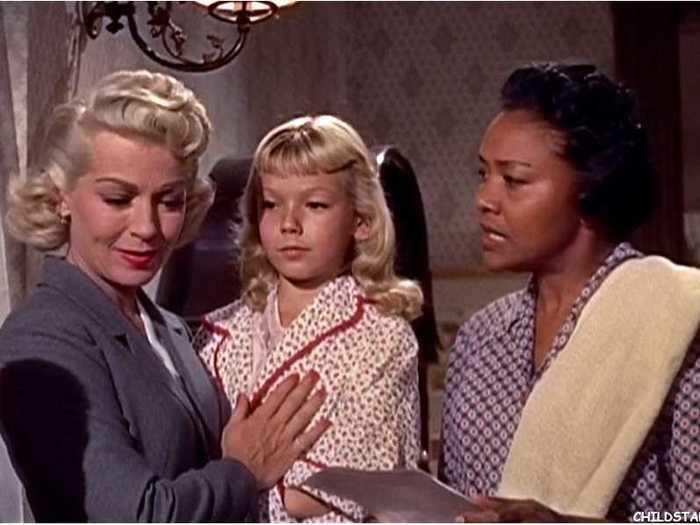
"Imitation of Life" was a 1959 remake of the 1934 film by John M. Stahl.
The remake was the last film that German director Douglas Sirk made in Hollywood, and it dealt with issues of gender and race in America.
The 1959 version was met with praise and later dubbed "culturally significant" by the United States Library of Congress in 2015.
"Douglas Sirk's 1959 film was the biggest grosser in Universal's history until the release of 'Airport,' yet it's also one of the most intellectually demanding films ever made in Hollywood," wrote Chicago Reader critic Dave Kehr.
"A Fistful of Dollars" (1964) was a breakthrough film in the spaghetti Western genre.
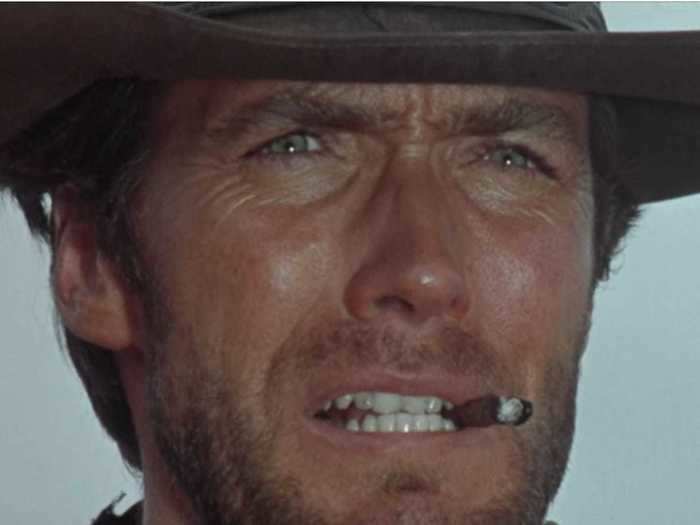
"A Fistful of Dollars" is best remembered as the first Western Clint Eastwood starred in, but it was also a sort of remake of the Akira Kurosawa film "Yojimbo" (1961).
Due to its commercial success in Italy, the film spurred two more Westerns in the "Dollars Trilogy" titled "For a Few Dollars More" (1965) and "The Good, the Bad and the Ugly" (1966).
"This is the 1964 movie, now on rerelease, which created the revolutionary new genre of the Spaghetti Western, an Italian co-production shot in Spain and directed with inspirational pulp passion by Sergio Leone," Peter Bradshaw wrote in his review of the film for The Guardian. "'A Fistful of Dollars' has a cult, comic-book intensity. It is the punk rock of westerns."
"Invasion of the Body Snatchers" (1978) is considered to be one of the better Hollywood remakes.
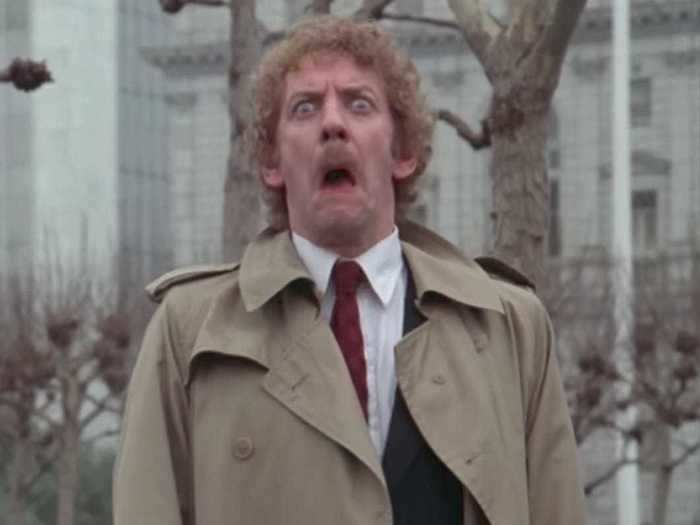
Philip Kaufman's "Invasion of the Body Snatchers" was a celebrated 1978 remake of the 1956 version, which itself was inspired by the novel by Jack Finney.
The 1978 version starred Donald Sutherland, Leonard Nimoy, and Jeff Goldblum as humans who slowly realize that the planet is being overtaken by aliens who perfectly copy the bodies of the people they take.
"It belongs on a shortlist with David Cronenberg's 'The Fly' and Martin Scorsese's 'Cape Fear,' as one of the few Hollywood remakes that actually outdoes its predecessor," wrote Deep Focus Review critic Brian Eggert in his analysis of the 1978 film. "Its body parts have been carefully sewn together, every facet electro-shocked with creativity."
"Scent of a Woman" (1992) was a remake of an Italian film.
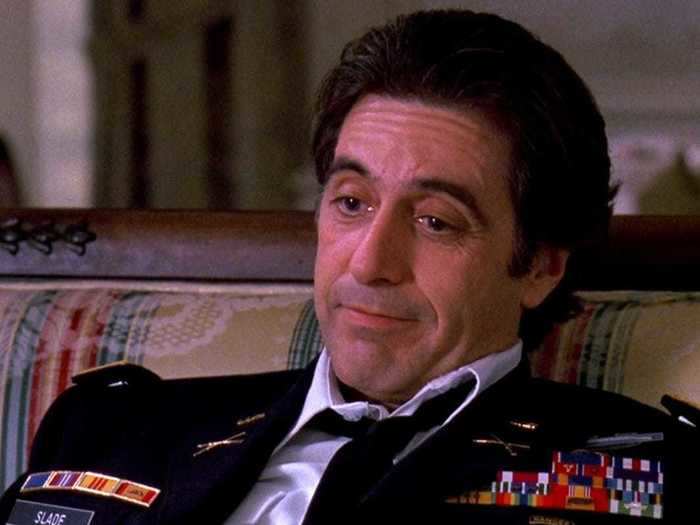
Starring Al Pacino and Chris O'Donnell, "Scent of a Woman" follows a young preparatory student as he aids a blind military officer.
The 1992 Martin Brest picture was a remake of the 1970s Italian drama by Dino Risi. The American remake was revered by critics and Pacino went on to win the Academy Award for best actor for his role as Lieutenant Colonel Frank Slade.
"By the end of 'Scent of a Woman,' we have arrived at the usual conclusion of the coming-of-age movie, and the usual conclusion of the prep school movie," Roger Ebert wrote for the Chicago Sun-Times. "But rarely have we been taken there with so much intelligence and skill."
"The Mark of Zorro" (1940) was a remake of a silent film of the same name.
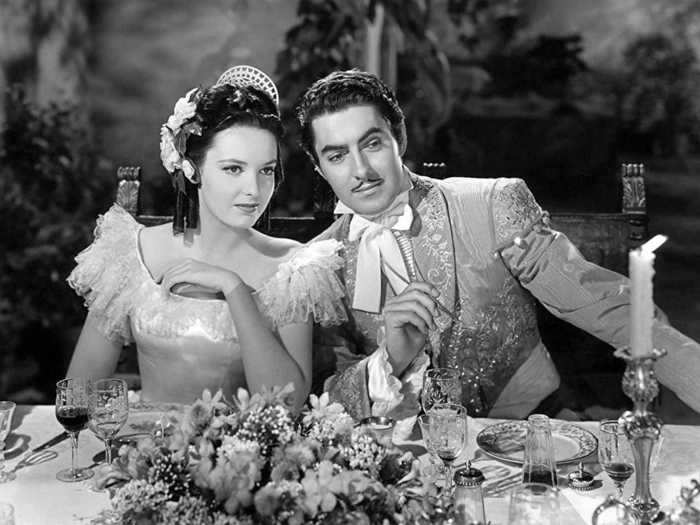
"The Mark of Zorro" is a black-and-white adventure film from 1940 that starred Tyrone Power, Linda Darnell, and Basil Rathbone.
Directed by Rouben Mamoulian, the film was a remake of a 1920 silent film of the same name that starred Douglas Fairbanks. Both movies were adapted from the "The Curse of Capistrano" story by Johnston McCulley which features Zorro, a masked hero.
True West Magazine summarized the 1940 film in a rave review, calling it "the best-ever talkie telling of Johnston McCulley's tale."
Netflix's "One Day at a Time" addresses contemporary issues.
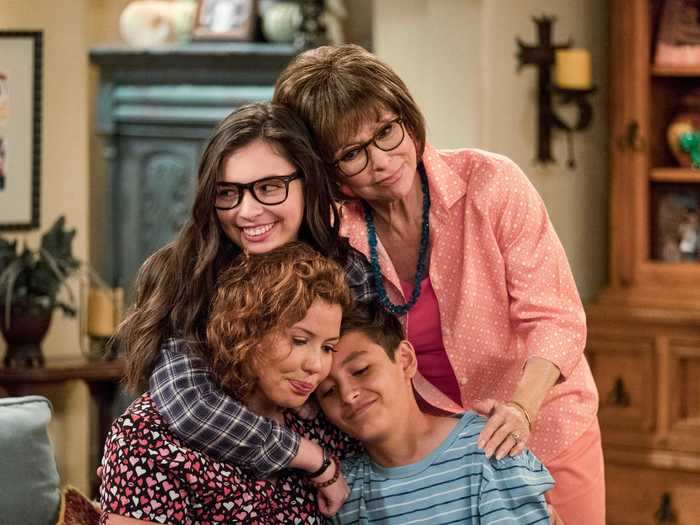
"One Day at a Time" is a Netflix show based on a sitcom that ran on television from 1975 until 1984.
Both shows focus on a young single mother as she attempts to raise her daughters on her own, but the latest iteration centers specifically on a Latinx family. The remake also deals with issues the original never addressed, including homophobia, mental illness, and racism.
The newer version has largely been received as an improved adaptation of the original sitcom, and the show was consistently listed by critics as one of the top TV shows of 2017.
"More than anything, 'One Day at a Time' is a show that radiates delight," New York Times critic Margaret Lyons wrote in 2018. "We're all looking for comedy that numbs the pain, but 'One Day at a Time' cultivates an intimacy and sense of belonging that goes a step further, introducing a level of genuine human happiness into the experience."
Alfred Hitchcock directed two versions of "The Man Who Knew Too Much."
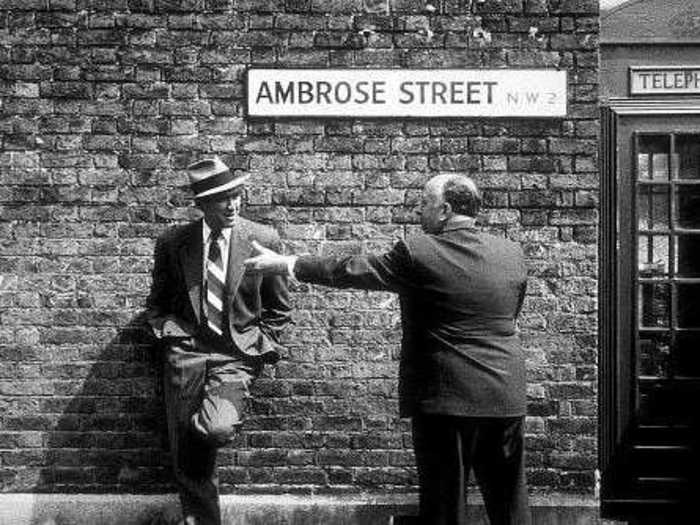
The "master of suspense" Alfred Hitchcock created two versions of "The Man Who Knew Too Much," one in 1934 and another in 1956.
The first movie starred Leslie Banks and Edna Best, and the second starred James Stewart and Doris Day.
When asked about the major differences between the first and second film Hitchcock reportedly once replied, "Let's say the first version is the work of a talented amateur and the second was made by a professional."
"A suspense film that can run two hours without the audience getting restless must be pretty good," The Hollywood Reporter published in 1956 upon the film's release. "'The Man Who Knew Too Much,' screenplayed by John Michael Hayes from a story by Charles Bennett and D.B. Wyndham-Lewis, meets this test."
"3:10 to Yuma" (2007) was a remake of an American Western classic.
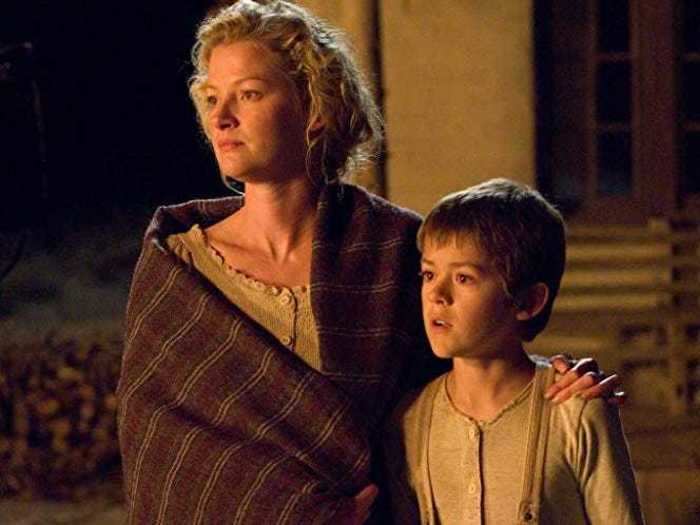
The 2007 Western "3:10 to Yuma" is a remake of the 1957 movie that starred Glenn Ford and Van Heflin.
Both films were based on a short story by Elmore Leonard that depicts a rancher as he tries to bring an outlaw to justice.
The 2007 remake starred Russell Crowe, Christian Bale, Alan Tudyk, and Logan Lerman and was largely seen as an improved version of the original.
"Nostalgists can kick all they want, but this is an improvement," Boston Globe critic Ty Burr wrote in 2007. "[Crowe and Bale] are among the best, most intuitively creative we have, and whatever transpires offscreen in Crowe's case, onscreen they only serve their characters. Neither man showboats here, and it's a thrill to watch them work."
"The Fly" (1986) was a remake with a focus on body horror.
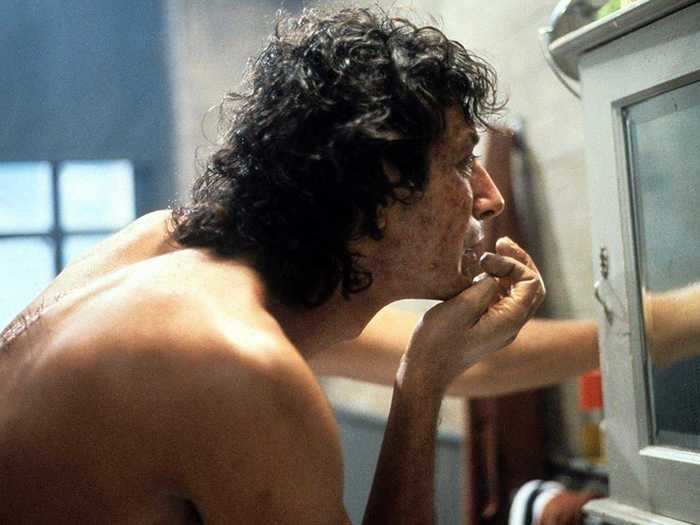
"The Fly" is a science-fiction body horror film that was directed and cowritten by horror master David Cronenberg.
The movie was an adaptation of the 1958 film directed by Kurt Neumann and both were inspired by the short story by George Langelaan.
The 1986 adaptation was considered an achievement in visual effects and its stars, Jeff Goldblum and Geena Davis, earned high praise for their work in the film.
"Cronenberg's film represents a new version of the 1958 Vincent Price campy entry and it destroys the much spread generalization that all remakes are gratuitous and evil," film critic Gerardo Valero wrote for the Roger Ebert review site. "This was not just about applying more modern technology to the same concept but about giving it a whole new dimension instead, going well beyond the goals of a typical horror flick."
"Doctor Who" is a science-fiction show that many feel has only gotten better with age.
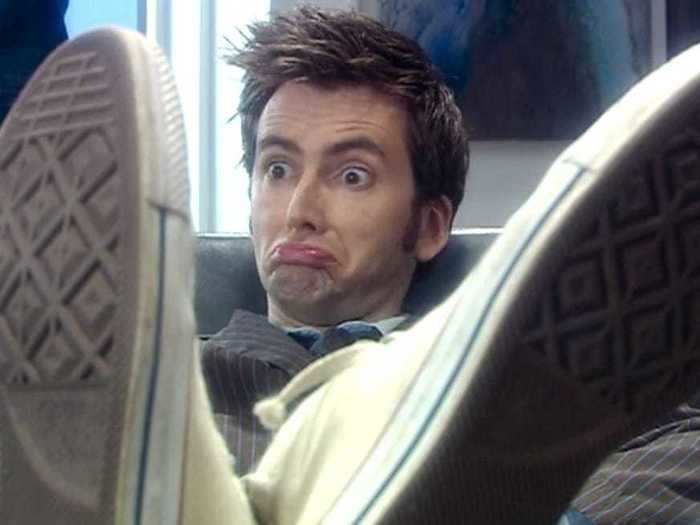
"Doctor Who" is a unique show that is one of the longest-running television programs in TV history.
The original series ran from 1963 until 1989, with a reboot in 2005 beginning a new era of the series. The British science-fiction show follows a time-traveling alien called "The Doctor" as they go on adventures throughout the universe with their human companions.
The show has existed as long as it has because the role of the Doctor has been recast over a dozen times so far, with the latest Doctor played by actress Jodie Whittaker.
Recent seasons of the show have received rave reviews, with some scoring 95% from critics on Rotten Tomatoes.
"An Affair to Remember" (1957) was another instance of a director remaking their own work.
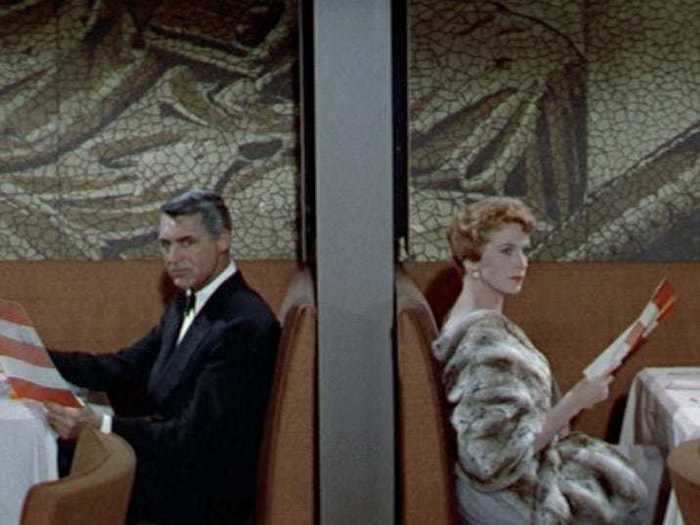
The romantic melodrama "An Affair to Remember" (1957) was a remake filmed by director Leo McCarey, who worked on the original "Love Affair" in 1939.
The classic starred Irene Dunne and Charles Boyer, and the latter featured Cary Grant and Deborah Kerr.
Though critics had mixed thoughts on the remake, the 1957 film was so well-received that the American Film Institute included it on its list of the "most passionate films of all time."
"'An Affair to Remember' looks back at 'Love Affair' ... as a story that once moved the director, retold in changed times as an act of defiantly anachronistic humanism," Fernando F. Croce wrote for Slant Magazine in 2008. "When McCarey has Kerr recite the original's most un-self-consciously romantic lines ('Winter must be cold for those with no warm memories'), he's asking whether the feelings behind them can still move us in 1957."
"Scarface" (1983) was a remake of a Howard Hawks film.
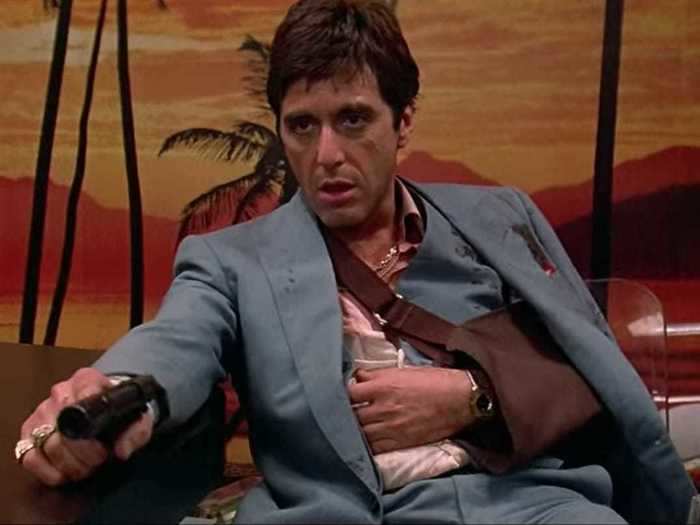
The crime film "Scarface" is perhaps best remembered for a scene in which Al Pacino wields a machine gun and says, "Say hello to my little friend."
The 1983 film was a remake of "Scarface: The Shame of the Nation," which was directed by Howard Hawks and released in 1932.
Both films centered around the notorious gangster Al Capone, but it was the later edition that became an instant classic.
"'Scarface,' Brian De Palma's update of the 1932 classic directed by Howard Hawks and written by Ben Hecht, is the most stylish and provocative — and maybe the most vicious — serious film about the American underworld since Francis Ford Coppola's ''Godfather," critic Vincent Canby wrote for The New York Times in 1983.
"Fatal Attraction" (1987) was an erotic thriller adapted from a short film.
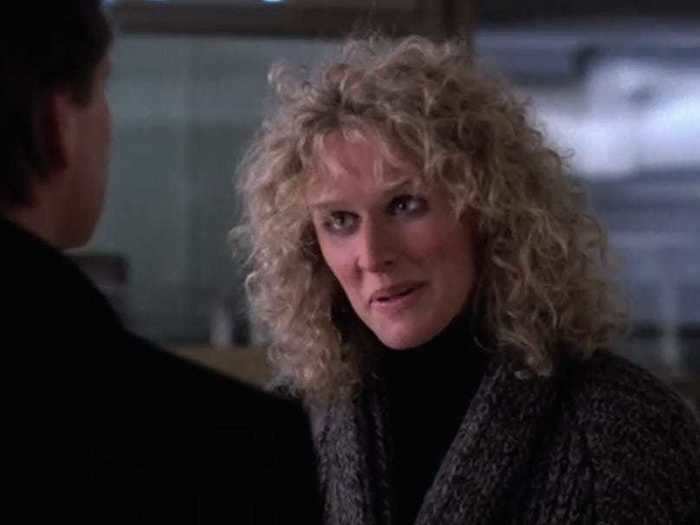
"Fatal Attraction" is a psychological drama that was released in 1987 and starred Michael Douglas, Glenn Close, and Anne Archer. The film was based on the 1980 short film titled "Diversion" and it focused on a marital affair gone awry.
It was generally well-received at the time of its release, and it received six Oscar nominations.
"[Michael] Douglas is attractive and believable, but he does take a backseat to Glenn Close's spectacularly crazed performance," Angie Errigo wrote for Empire in 1987. "Two absolutely riveting performances and a smart reversal of the usual male-female stalker scenario leave behind a nasty taste and an unforgettable cinema experience."
"A Star Is Born" (2018) is the fourth retelling of the 1937 original.

"A Star Is Born" tells a story that has undergone four adaptations on the big screen — in 1937 with Janet Gaynor, 1954 with Judy Garland, 1976 with Barbra Streisand, and 2018 with Lady Gaga.
The latest effort was directed by Bradley Cooper, who also stars alongside Lady Gaga, and has earned huge praise from both film critics and audience members.
The newest rendition joins the 1954 version as a critical darling, whereas the 1937 and 1976 efforts fell short in comparison.
The critical consensus for the 2018 remake on Rotten Tomatoes reads: "With appealing leads, deft direction, and an affecting love story, 'A Star Is Born' is a remake done right — and a reminder that some stories can be just as effective in the retelling."
"His Girl Friday" (1940) was a remake with a gender reversal.
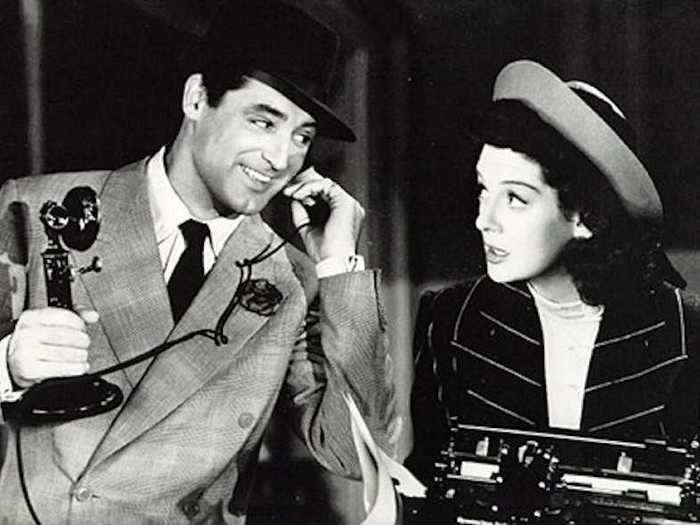
"His Girl Friday" is a 1940 comedy directed by Howard Hawks that starred Rosalind Russell and Cary Grant in the lead roles.
It was a remake of a 1931 movie called "The Front Page" and both films were adaptations of an original stage play of the same name.
The first film adaptation was well-received, but it was the 1940 remake that earned rave reviews from critics. Filmgoers were charmed by Hawks' decision to change the gender of the main reporter to a woman (Russell) instead of a man.
"[Its] unflappable, unflagging energy makes 'His Girl Friday' one of the snappiest and most purely enjoyable rom-coms ever made," Jesse Hassenger wrote in their review of the film for AV Club. "It's also a swell screwball tribute to the journalism profession, depicted as a job noble and exciting enough to get a woman in 1940 to choose her career over domestic bliss."
"Shameless" was a British comedy that was remade in America.
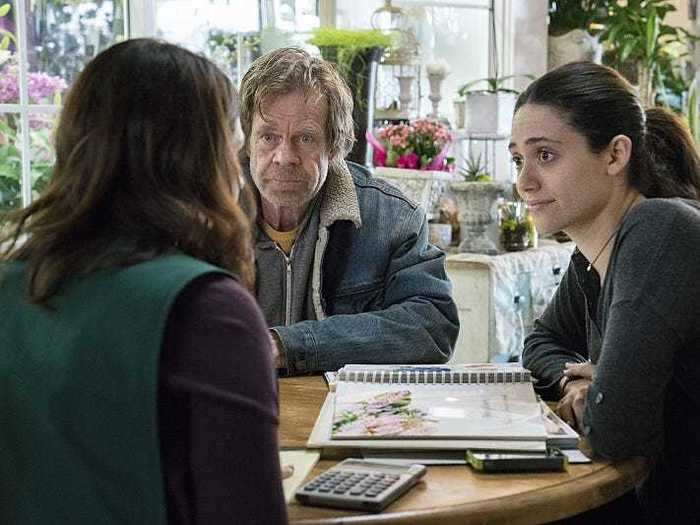
The UK's "Shameless" was a dark comedy that focused on a British working-class family. It ran from 2004 until 2013.
The show was brought to America in 2011, and it switched its focus to an impoverished family based in Chicago.
The acting and writing of both shows have been praised by critics, but the American version has earned the Showtime network record-breaking high ratings and has become its longest-running scripted program.
"When we first started pitching, everybody kept gravitating towards the South or putting it in a trailer park, and I kept saying, 'Well, no,' " showrunner John Wells told The New York Times in 2010 when "Shameless" was first adapted. "We have a comedic tradition of making fun of the people in those worlds. The reality is that these people aren't 'the other' — they're people who live four blocks down from you and two blocks over."
"Ben-Hur" (1959) was a huge achievement in filmmaking.
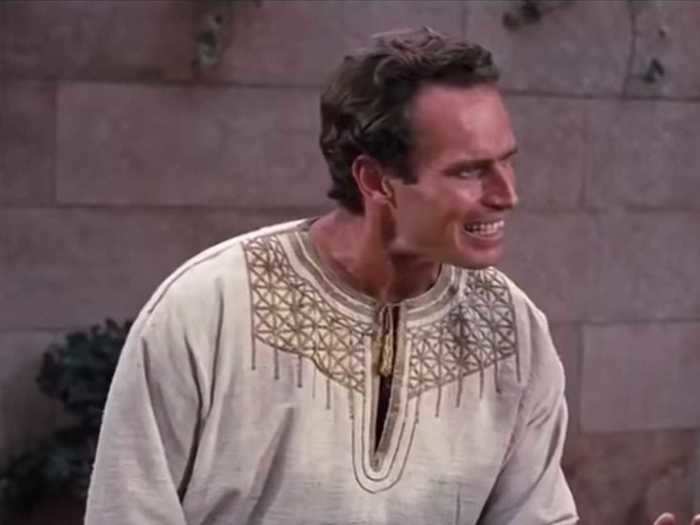
A remake of the 1925 silent picture "Ben-Hur: A Tale of the Christ," William Wyler's 1959 "Ben-Hur" is a biblical epic that remains one of the best movies in film history.
"The big difference between 'Ben-Hur' and other spectacles, biblical or otherwise, is its sincere concern for human beings," wrote Variety critic Ronald Holloway in his review of the film. "They're not just pawns reciting flowery dialog to fill gaps between the action and spectacle scenes. They arouse genuine emotional feeling in the audience."
"The Wizard of Oz" (1939) was a remake of a silent film from 1925.
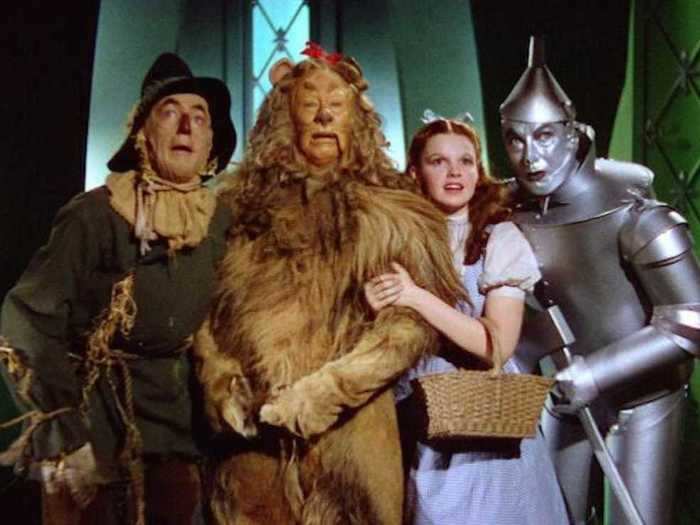
Many remember the classic film "The Wizard of Oz" for its achievements and its memorable music, but it's actually a remake of a 1925 version called "Wizard of Oz."
The first movie was directed by Larry Semon and was a black-and-white silent film that did not fare well financially. In fact, the film's production company Chadwick Pictures went bankrupt upon the film's release.
The 1939 musical remake had much greater success commercially and critically, garnering only more praise as the decades went by.
"Superlative. It couldn't be better," The Kansas City Star printed in a 1939 review. "Don't make the mistake of believing this Technicolor spectacle is just a show for children ... As a hilarious musical comedy it ranks with Disney's 'Snow White and the Seven Dwarfs,' and its able cast proves that with intelligent production, human actors still can compete with cartoons when it comes to portraying fantasy."
"Heat" (1995) was originally conceived as a TV movie.
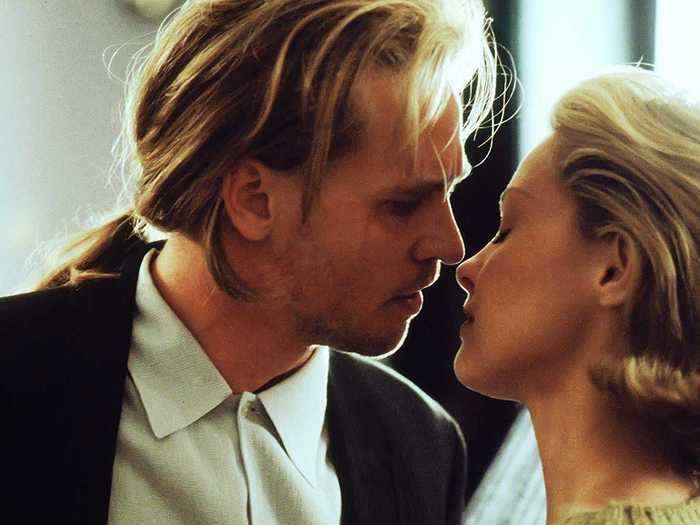
The 1995 crime thriller "Heat" starred Al Pacino, Robert De Niro, and Val Kilmer. It was a remake of the 1989 TV movie "L.A. Takedown" starring Scott Plank and Michael Rooker.
With a bigger budget and a wide theatrical release, "Heat" was better received by critics in comparison to "L.A. Takedown," and was a win for director Michael Mann.
In Slant Magazine, critic Jeremiah Kipp wrote a glowing review of the film a decade after its release: "'Heat' is told on an impressive, unsubtle epic scale with a dozen highly dimensional main characters, at least four doomed romantic subplots, and vividly sketched supporting characters."
Netflix's reboot of "Queer Eye" has expanded upon the original show.

The show, hosted by Antoni Porowski, Tan France, Karamo Brown, Bobby Berk, and Jonathan Van Ness, follows the five experts as they attempt to better the lives of good-hearted people in need of a confidence boost.
It is a revival of the hit reality show "Queer Eye for the Straight Guy," which premiered on Bravo in 2003.
"['Queer Eye for the Straight Guy's] spoken intent was to make straight men better on an individual level; its unspoken idea was that a broader cultural betterment might follow," Kathryn VanArendonk wrote for Vulture in her critical analysis of the show. "On the new 'Queer Eye,' that idea becomes explicit. To its credit, the series also tries to imagine what broader cultural betterment would entail: exfoliants and conversations about privilege, celebrations of self-care and attempts to reframe a man's idea of 'self' within the world."
"True Grit" (2010) was a new take on a John Wayne Western.
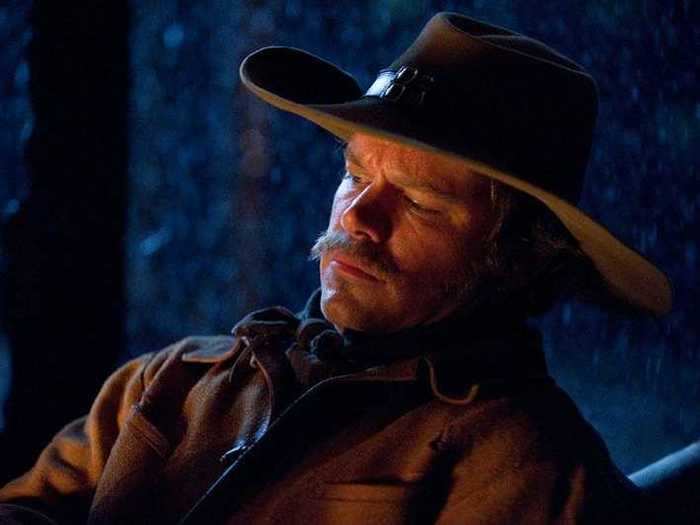
Starring Hailee Steinfeld and Jeff Bridges, "True Grit" is a Coen Brothers Western and remake of the 1969 John Wayne film of the same name.
Both movies were adapted from the Charles Portis novel "True Grit," which follows a young girl who enlists a lawman to avenge her father's death.
The 2010 remake was nominated for 10 Academy Awards and was beloved by many filmgoers.
"It will surprise none of the Coens' fans that 'True Grit' is a technically accomplished movie; by now, their mastery of every cinematic element is well established, from writing and casting to cinematography, editing and sound design," critic Ann Hornaday wrote for The Washington Post.
"The Departed" (2006) was adapted from a Hong Kong thriller.
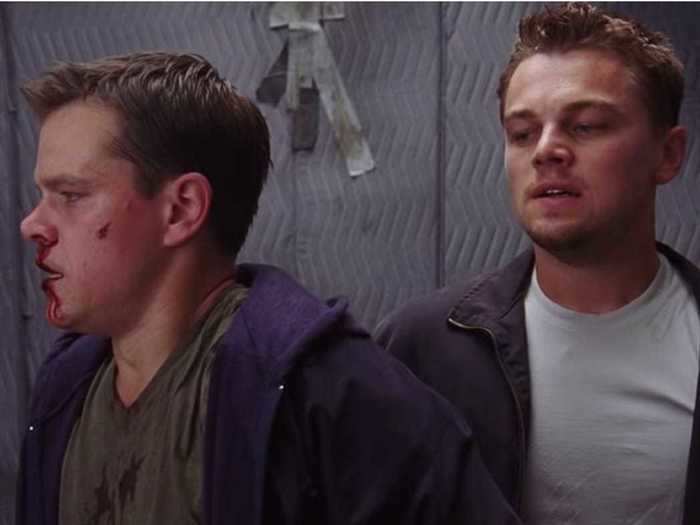
"The Departed" is a 2006 American crime thriller directed by revered filmmaker Martin Scorsese ("Taxi Driver," "Shutter Island") that was a remake of the 2002 Hong Kong drama "Infernal Affairs."
Both centered around police officers working undercover, and the series of complicated betrayals that follow.
Although both films were well-reviewed, critics largely enjoyed the 2006 remake and preferred it to the original.
"Less elegant, rowdier, and more neatly resolved than the original, 'The Departed' loves its excesses," Cynthia Fuchs wrote for Common Sense Media. "Directed by Martin Scorsese and scripted by William Monahan, the movie is brutal and brainy, with speedy plot twists and deceptions layered on top of deceptions."
"Ocean's Eleven" (2001) was a remake of the 1960 heist film.
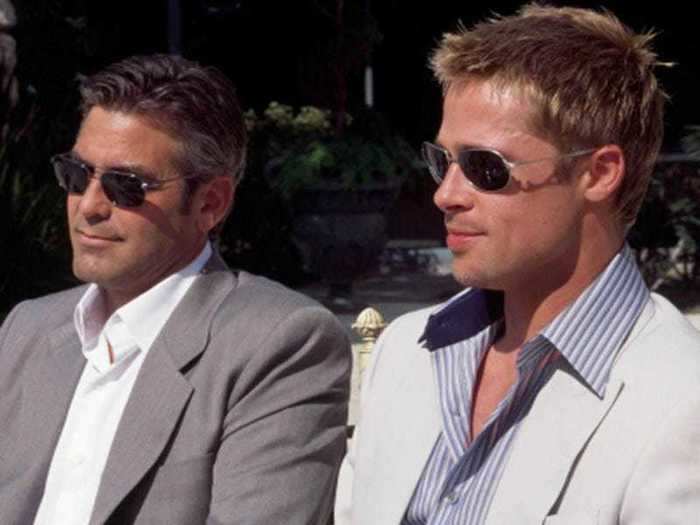
"Ocean's Eleven" was released in 2001, which itself was a remake of the 1960 film "Ocean's 11."
The original movie featured a host of stars that included Peter Lawford, Frank Sinatra, Dean Martin, and Sammy Davis Jr.
Although the 2001 version received high praise from critics and spurred multiple sequels, "Ocean's Eleven" star George Clooney expressed his frustration towards fans of the original dismissing the remake on principle.
"Everybody will say, you know, 'Oh, ['Ocean's 11'] is one of my favorite films,' and I'll always say, 'Have you ever seen it?'" Clooney said in an interview with the Los Angeles Times in 2001. "The truth is, most people never saw the original 'Ocean's 11.' They just think they have because those guys were the coolest. Nobody touches Frank and Sammy and Dean, and we won't ever be that cool. But we do have a really great story."
"True Lies" (1994) was an adaptation of a French comedy.
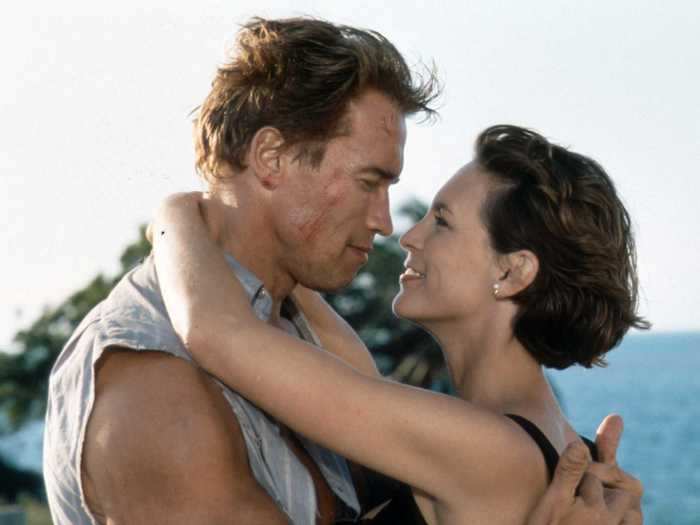
"True Lies" is a 1994 American remake of the French comedy "La Totale!" directed by Claude Zidi in 1991.
The American version was directed by James Cameron ("Titanic," "Avatar") and starred Arnold Schwarzenegger, Jamie Lee Curtis, and Bill Paxton. The action film followed Schwarzenegger as a government agent who struggles to prioritize his family as he goes undercover.
The film was met with acclaim and praise, with Curtis winning the Golden Globe for best actress for her role.
"What sets this apart from the average actioner is an over-the-top quality that makes it impossible to take seriously," Empire critic Caroline Westbrook wrote in her 1994 review of the film. "The net result is unbeatably good fun, helped along by that inherent fantasy that one man can create global mayhem without stopping to worry who's going to clean up afterwards."
"Little Shop of Horrors" (1986) was a film remake of a musical adaptation.
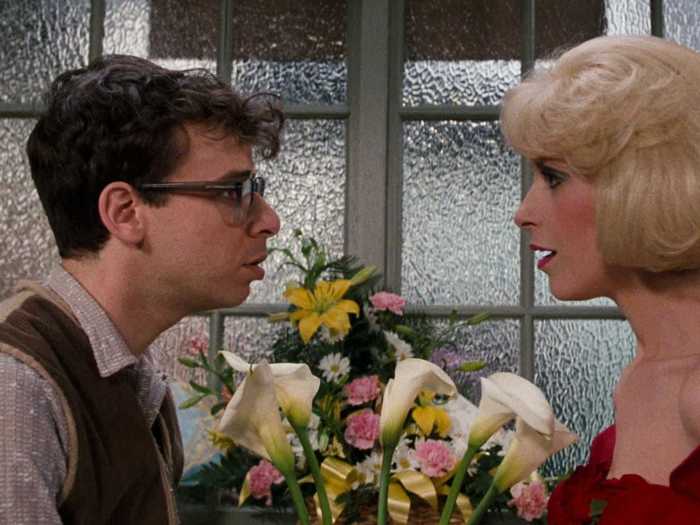
Following the cyclical path of many other remakes, the 1986 musical comedy "Little Shop of Horrors" was based on a Broadway musical that was itself inspired by the 1960 film "The Little Shop of Horrors."
The original film was well-received by critics and audience members, but many filmgoers find the 1986 version to be an improvement upon the original.
"It's a story about conquering your demons and discovering the best you can be — even if it takes a blood-guzzling talking plant to get you there," Jessica Hopkins wrote for The Guardian. "That said, for me it's not really about the story, it's about the experience. Because from the second the … first fast chords of the keyboard begin, I know I have 90 minutes of fabulousness ahead of me. I'll be unashamedly dancing along once more."
The American version of "The Office" lasted seven seasons longer than the original.
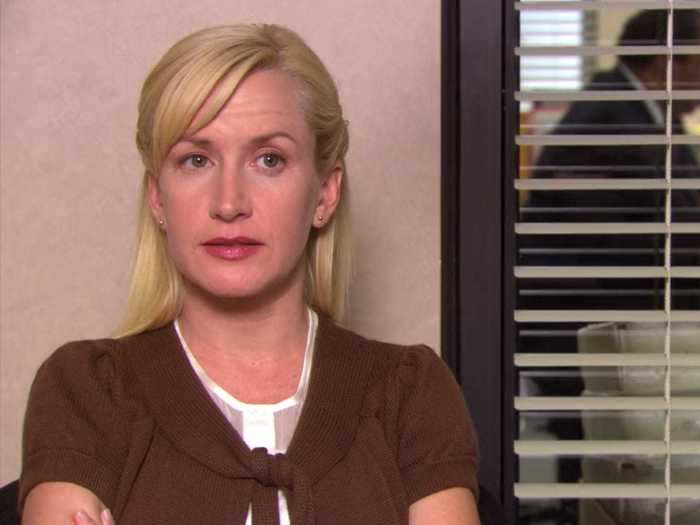
Including the American adaptation of "The Office" on this list is not to imply that the British original is worse per se, but to highlight that the American version had the critical success and momentum to live on for nine seasons.
The mockumentary show starred a vast cast of comedic talents that included Steve Carell, Jenna Fischer, John Krasinski, and Rainn Wilson.
"As finales go, 'The Office's' conclusion hit the mark," Kelly West wrote for Cinemablend when the show ended in 2013. "I've loved this show since the beginning. Maybe part of that stems from my own stint working office jobs and knowing that the humor is often found in the strangest moments… 'The Office' was always really great at capturing that humor. And it always left me smiling and satisfied."
"The Thing" (1982) took inspiration from a 1950s horror film.
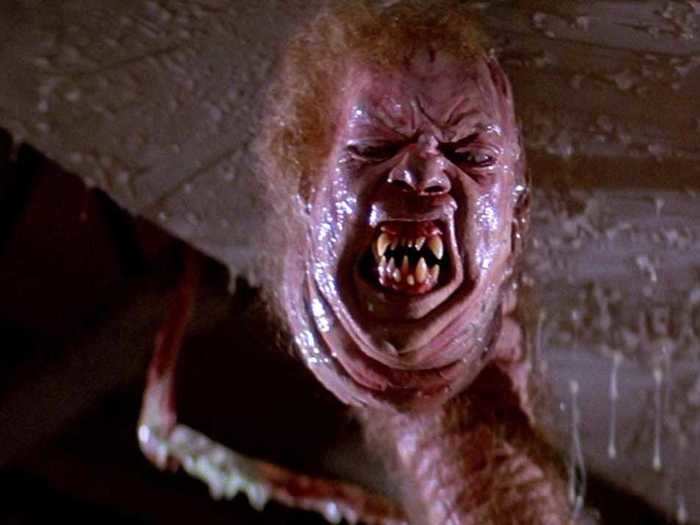
"The Thing" (1982) is a remake of the 1951 black-and-white movie "The Thing from Another World."
When John Carpenter released the science-fiction body horror in the early 1980s, the now-classic horror movie was initially met with disgust and disapproval from critics and filmgoers.
As the decades passed, critics revisited the film and realized they had overlooked a truly groundbreaking film that would go on to inspire a generation of budding horror filmmakers.
In 2018, Toledo Blade pop culture writer Kirk Baird recommended the film for horror lovers: "Widely panned by critics and audiences when first released, 'The Thing,' with its groundbreaking visual effects, terrific ensemble, and haunted-house atmosphere, is now rightfully regarded as an all-time horror classic."
"Airplane!" (1980) was a satirical remake of "Zero Hour!" (1957)
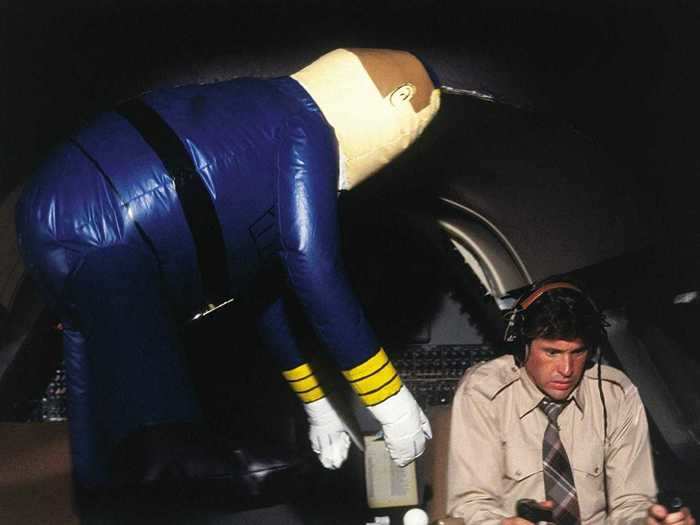
"Airplane!" is often included in critics' lists as one of the best comedic films of all time — and it's revered more than the film it riffed off of.
The movie, directed by Jim Abrahams, David Zucker, and Jerry Zucker, featured a cast of talented comedians including Leslie Nielsen, Julie Hagerty, and Robert Hays.
Though it lampooned many movies in the disaster film genre, it particularly parodied the 1957 film "Zero Hour!" and even took large chunks of dialogue straight from its screenplay.
"The streamlined disaster movie riff... is pure quadruple-distilled comedy, with a gag rate of about three hilarious jokes per minute and a perfect mix of surrealism, wit, parody and inspired physical gags," The Empire magazine team wrote in 2019. "It has inspired approximately a billion quotes and homages in the 30 years since it first hit screens and still hasn't ever been equaled by its many, many imitators."
"The Ten Commandments" (1956) has the same director as the 1923 version, but it's seen as being much better.
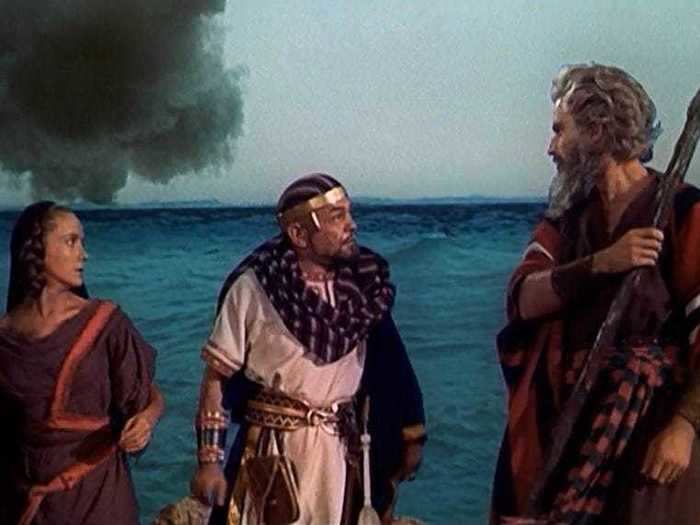
"The Ten Commandments" is a biblical epic released in 1956 and was, at the time, the most expensive film ever made. The Cecil B. DeMille picture was a remake of the silent film of the same name DeMille himself made in 1923.
Film critics have called the 1956 installment one of the best films ever made.
"There is no other picture like it," The Hollywood Reporter critic James Powers wrote in 1956. "There will be none. If it could be summed up in a word, the word would be sublime. And the man responsible for that, when all is said and done is Cecil B. DeMille."
"Batman Begins" (2005) was the Batman remake fans needed.
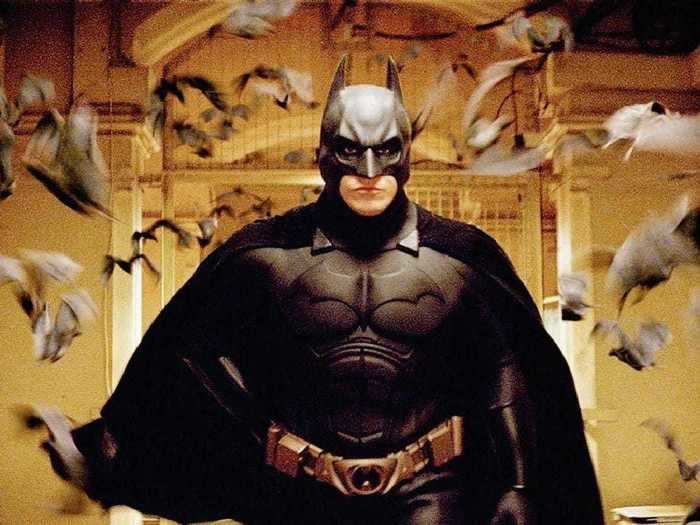
In a world with so many different Batman films, "The Dark Knight" seems like the obvious choice as the most critically successful film adaptation of the Batman comics.
However, many believe Christopher Nolan's "Batman Begins" that redefined the superhero genre entirely.
"Batman Begins," which spurred two sequels, starred Christian Bale as the caped crusader in a darker, grittier Gotham.
"Christopher Nolan's work on 'Batman Begins' is truly outstanding. He has taken command of the franchise and raised the bar for comic-based films," film critic Jeff Otto wrote for IGN in 2005.
"The Maltese Falcon" (1941) improved upon an adaptation made a decade earlier.
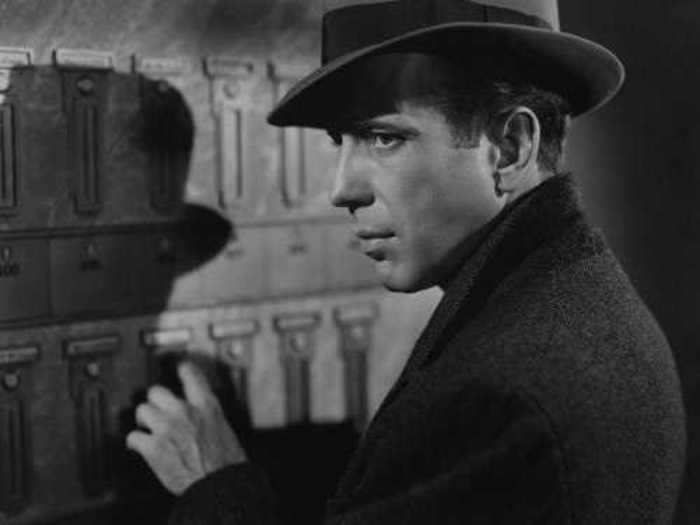
The 1931 version of "The Maltese Falcon" starred Bebe Daniels and Ricardo Cortez and the 1941 rendition featured Humphrey Bogart and Mary Astor.
Although both movies were adaptations of a novel by Dashiell Hammett, the 1941 version blew critics away and earned a perfect critic score on Rotten Tomatoes.
"It's all style," wrote film critic Roger Ebert wrote when he revisited the film in 2001. "It isn't violence or chases, but the way the actors look, move, speak and embody their characters."
READ MORE ARTICLES ON
Popular Right Now
Popular Keywords
Advertisement